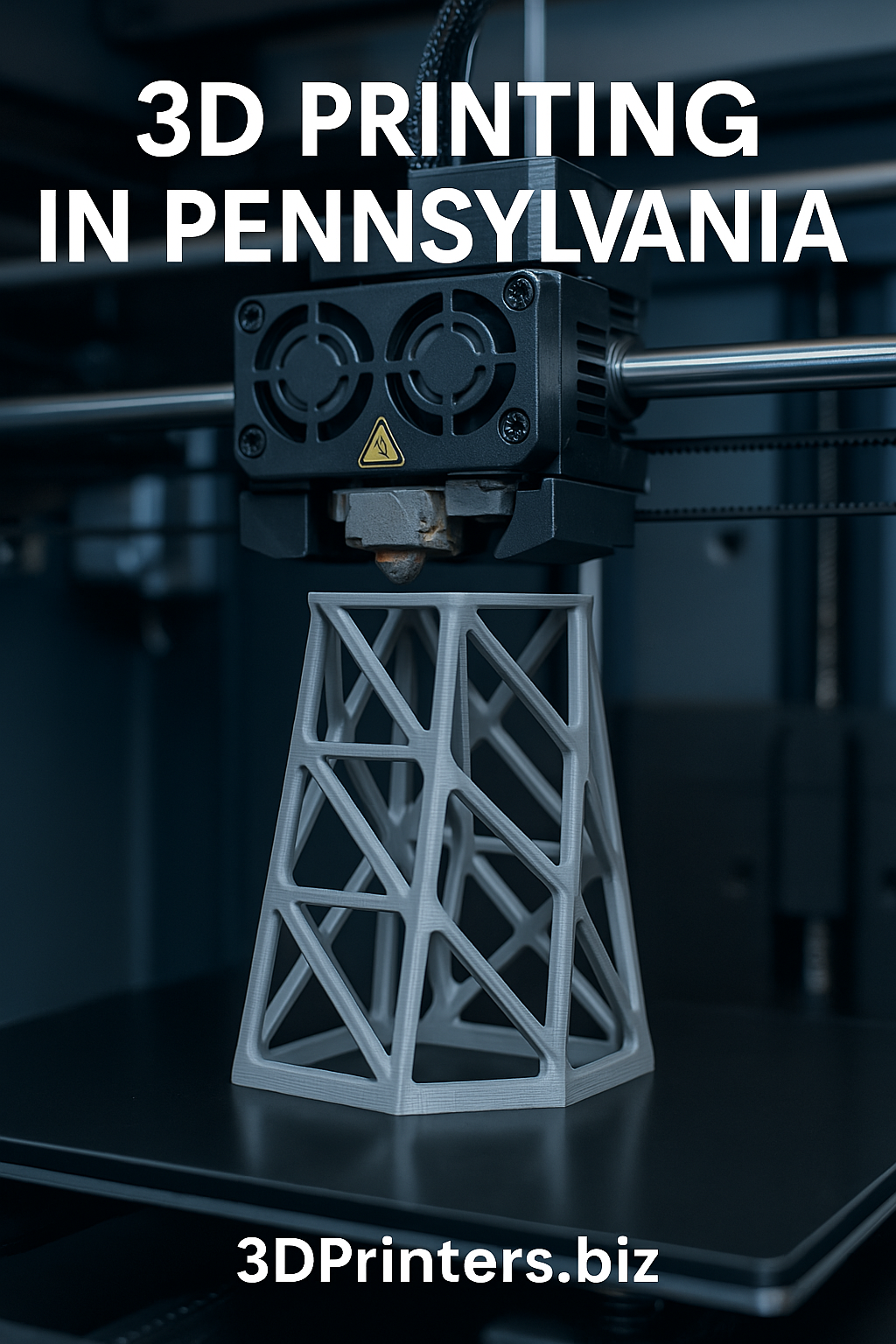
The State of 3D Printing in Pennsylvania: A Deep Dive into Additive Manufacturing
Share
3D printing, or additive manufacturing (AM), has evolved into a crucial technology across multiple industries, from aerospace and healthcare to tooling and consumer goods. Pennsylvania, with its strong manufacturing history and research-driven institutions, has become a major player in advancing 3D printing technologies. This article explores how 3D printing is shaping industries in Pennsylvania and provides a technical understanding of key processes and innovations in the field.
Pennsylvania: A Hub for Additive Manufacturing Innovation
Pennsylvania is home to world-class research facilities focused on material science, process optimization, and advanced manufacturing methodologies. The state's manufacturing ecosystem has embraced AM, integrating it into traditional production workflows for rapid prototyping, low-volume production, and even end-use parts. Industries leveraging 3D printing include:
Aerospace & Defense: High-performance polymer and metal 3D printing enable the production of lightweight structural components, functional prototypes, and conformal cooling channels for thermal management.
Medical & Healthcare: Additive manufacturing facilitates bioprinting, patient-specific implants, lattice-structured orthopedic components, and complex surgical tools optimized for biomechanical performance.
Automotive & Industrial Manufacturing: AM is used for precision jigs, fixtures, topology-optimized parts, and mold inserts with conformal cooling pathways to improve production efficiency and component longevity.
Key 3D Printing Technologies Used in Pennsylvania
To understand the impact of 3D printing, let’s explore the major technologies used in Pennsylvania’s industrial ecosystem:
Fused Deposition Modeling (FDM)
FDM utilizes thermoplastic extrusion to create layer-by-layer structures with controlled material deposition. Advanced FDM implementations integrate closed-loop thermal management, multi-axis printing capabilities, and high-performance polymers such as PEI, PPSF, and CF-reinforced composites for functional end-use applications.
Stereolithography (SLA) & Digital Light Processing (DLP)
SLA and DLP use photopolymerization to solidify resin layers, achieving high-resolution feature detail. Developments in material chemistry have led to the introduction of functional-grade photopolymers with tunable mechanical properties, enabling applications in microfluidics, dental prosthetics, and high-temperature-resistant components.
Selective Laser Sintering (SLS) & Multi Jet Fusion (MJF)
Powder-based AM processes like SLS and MJF allow for the production of polymer components with isotropic mechanical properties. Material advancements in PA12, PA11, and TPU have expanded applications into high-performance end-use parts, including impact-resistant enclosures, medical devices, and lightweight drone components.
Direct Metal Laser Sintering (DMLS) & Electron Beam Melting (EBM)
Metal AM processes such as DMLS and EBM enable near-net-shape production of complex geometries with high-strength alloys. The integration of in-situ process monitoring, laser power modulation, and real-time thermal feedback has enhanced part density, microstructural integrity, and mechanical repeatability for aerospace and medical applications.
The Future of 3D Printing in Pennsylvania
As the technology matures, several trends will define the future of 3D printing in Pennsylvania:
Hybrid Manufacturing: The integration of AM with CNC machining, directed energy deposition, and subtractive finishing techniques will refine surface quality and mechanical properties.
Large-Format 3D Printing: Advancements in gantry-based extrusion systems and robotic deposition will enable the printing of structural-scale components for construction, aerospace, and industrial tooling.
Automation & AI in AM: AI-driven generative design, real-time defect detection, and process parameter optimization will enhance manufacturing efficiency and material utilization.
Sustainable 3D Printing: The development of bio-based polymers, recyclable metal powders, and closed-loop material reuse systems will drive sustainable production practices.
Pennsylvania is at the forefront of 3D printing innovation, driving advancements in aerospace, healthcare, and industrial manufacturing. Whether you’re an engineer, business owner, or researcher, understanding the key technologies behind additive manufacturing can open doors to new opportunities.
If you're looking to integrate 3D printing into your operations, Pennsylvania offers a wealth of expertise, research facilities, and industrial partnerships to help you stay ahead of the curve.
